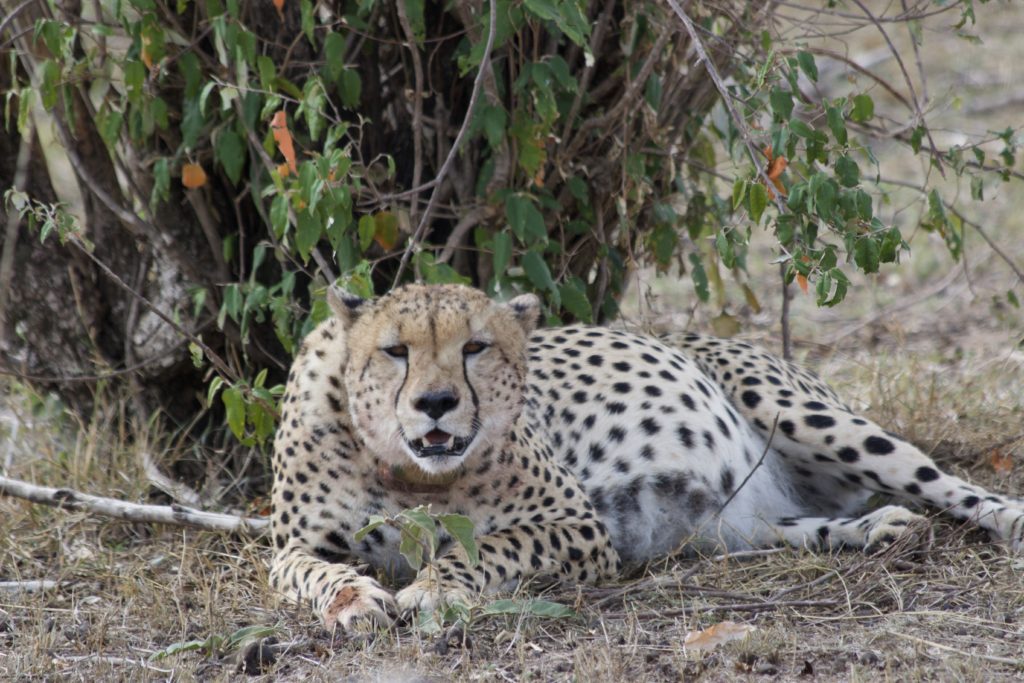Species in Peril:
Grey wolves
Cheetahs...This Big Cat's Got Game
These Cats are Fast!
The cheetah is the world’s fastest land mammal. With acceleration that would leave most automobiles in the dust, a cheetah can go from 0 to 60 miles an hour in only three seconds. These big cats are quite nimble at high speed and can make quick and sudden turns in pursuit of prey.
When the moment is right a cheetah will spring after its quarry and attempt to knock it down. Such chases cost the hunter a tremendous amount of energy and usually over in less than a minute. If successful, the cheetah will often drag its kill to a shady hiding place to protect it from opportunistic animals that sometimes steal a kill before the cheetah can eat. Cheetahs need only drink once every three to four days.
Cheetah Cubs and Surroundings
Female cheetahs typically have a litter of three cubs and live with them for one and a half to two years. Young cubs spend their first year learning from their mother and practicing hunting techniques with playful games. Male cheetahs live alone or in small groups, often with their littermates.
Most wild cheetahs are found in eastern and southwestern Africa. These populations are under pressure as the wide-open grasslands they favor are disappearing at the hands of human settlers.
In Danger of Extinction
While they were once commonly found across Africa, even in the Middle East and east to India, the cheetah’s numbers and habitat have been declining over the last century. It now lives in Africa, and a few may survive in Iran.
Their spotted coats make them attractive to hunters, and because they sometimes attach livestock, they were targeted and have disappeared from many areas. More recently, the widespread habitat destruction has broken up many cheetah habitats. In many areas, people have over-hunted even the cheetah’s natural prey.
A Few More Facts About Cheetahs
- Cheetahs were trained by man for hunting as long ago as 3000 B.C.
- They have a keen sense of hearing, sight, and smell
- A fully grown cheetah can reach speeds in excess of 60 mpg
- Cheetahs have no natural enemies
- Cheetahs are often mistaken for leopards
- The female cheetah is solitary, unless she has a litter of cubs
- Male cheetahs live in small groups, often with their littermates
- Cheetahs may live up to 12 years in the wild
Video: Cheetah Chasing An Impala
Cheetahs are in Danger of Extinction
The cheetah is in danger of extinction through loss of habitat due to humans killing them for their beautiful fur coat.
We owe it to the fastest land animals on the planet to protect their environment so that they will always have a place on this planet to live free from human interference and thrive in their natural habitats.

Species Name
Acinonyx jubatus
Estimated Population
7,100 globally
Conservation Status
Vulnerable
Range
Parts of Africa; Central Iran
Reasons for Population Decline
Habitat destruction
Livestock protection
Poaching


